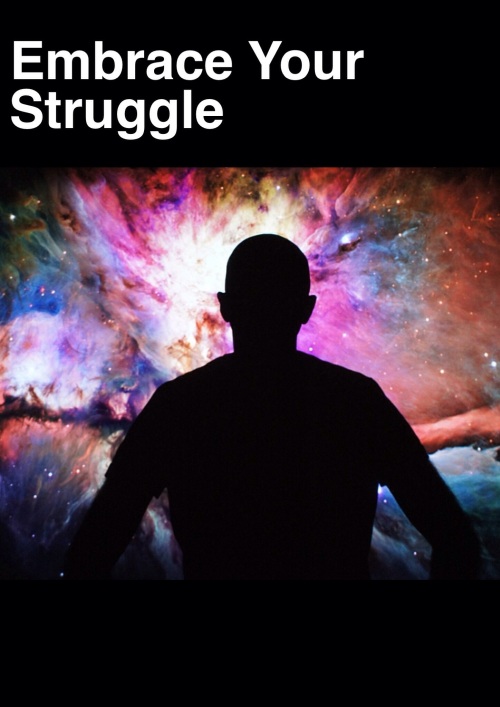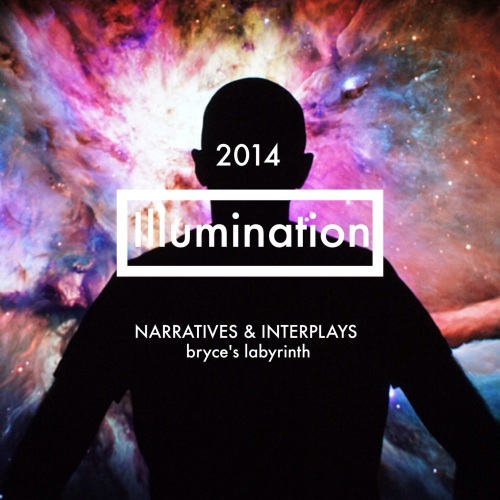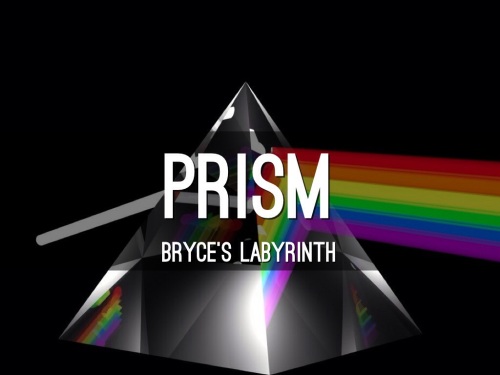In your youth struggle is your job.
It is your occupation and you should very well give the entirety of your effort to it.
The gripe a preceding generation always has with its successor is that they are too headstrong; the kids think they know better because they have calculated and adjusted for the errors of their parents. One of the prevailing mantras of parenthood is to raise your kids to be better than yourself; a mantra that like so many idiosyncrasies in verbal communication veils some difficult truths to swallow.
There are many problems endemic to human interaction but it is my belief that chief among them — and I’m not using that with creative license, I do indeed mean chief — is our persistent belief that life is linear. We spend a significant portion of our time trying to creative predictable results with education, legislature, religion, politics and the like, that we start to put our independent beliefs above the veritable panoply of interpretation that exists adjacent and opposite to us.
In order to gain peace with the world we must learn to get over ourselves. A task much easier said than done.
Our generation has experienced things that no other group on earth ever has and as much as we herald that in our communicative channels, I do not believe many understand the gravity of that. We are a more informed cohort, but we are not necessarily any more advanced than those before us. We may have more opportunities than those before us, but that doesn’t mean that those opportunities come without a fight. The conditions of human experience have changed, but the nature, as always, remains aberrantly persistent.
We believe that wisdom can be bought or expedited because we have learned from those who toiled in the decades before we were even thought of. This precludes us from ever truly understanding what youth is about. To add consternation to chaos, our parents do not have clear understandings either; they may possess a tacit, learned understanding, but to translate that into meaningful terms is lost on many people.
So young people go through these early years trying to forge their way into a system, only to be indelibly whittled down by inevitability.
You MUST struggle now. That is your job.
You cannot look to particular conditions, those are meaningless in the eyes of objective reality. You cannot say, “I’m going to change corporate America by starting my own business”, that is a clear contradiction. It is not until you struggle and learn why corporate America is fucked that you stand even a shadow of a chance of any meaningful reform.
The struggle of learning is the constant because it reflects the nature of humanity. No one can deny that the specifics of our culture and ancient Egypt were different, however, an adept eye can see that the generalities, the larger scope of human expression is unyielding. If we focus only on the micro then we remain in our delusion, fighting wars of ego and redundancy while swearing we are making changes.
The worst thing that can happen to a young person is that they find success early. They will self destruct because it is a commonplace tendency for humans to grow complacent and rigid when they think their system of operations works. They will more than likely create even more egregious errors than their predecessors; they’re actions will be identical, however the ever increasingly scrutiny by society mixed with the greater abundance of information will amplify their ignobility.
You must sit in your struggle and confront it daily. You must soak in its astringent acids everyday for it will burn completely the useless necrotic tissue of youthful ignorance. The skin will rejuvenate and instead of coming back as it was or simply coming back thicker, it will be tailor made for the life you have chosen. You won’t just be tougher because certain situations don’t call for ubiquitous toughness; you will be dynamic.
The dynamism is the calling card of the elite thinker, the knower that traverses the land as adroit observer.
What you think you know, what I think I know is of no consequence to the life force that animates us. What you feel or what convicts you is a fly to a whale; not only is it inconsequential, it exists in a completely different medium. The dimension of wisdom and the dimension of opinion do not exist on the same plane; you must divorce yourself from yourself.
In your struggle, you must employ all of your wit, all of your faith, and all of your deepest stratagems to unlock the secrets of your own existence. Whether you call upon a higher power or not, there are secrets that are only revealed after one has suffered to gain them. That suffering is your sacrifice, it is your toll to a realm that moves superior to our own.
Do not pray for your struggle to end; pray for you to outmatch your struggle. Pray for the skill to outwit your obstacles and outperform your rivals. Match that skill against all the things you have learned falling down and getting back up and then, only then, will you taste the delicacy of wisdom.
We all believe that the opposite side of struggle is some earthly success. That my struggle ends when I get paid or my struggle ends when I get married to the person of my dreams. But those will be ripped from your hands if you have not filled yourself with the thoughts of wisdom. Proverbs 8:11 says it best
“For wisdom is better than rubies and all the things that may be desired are not to be compared unto it.
It goes on to say in verses 17-18:
“I love them that love me: and those that seek me early shall find me.
Riches and honor are with me; yea, durable riches and righteousness.
Wisdom is the opposite of struggle, not some expression of success. Wisdom is success. Some people say wisdom is knowing what to do with the information you receive; I don’t care how one defines it, I just know that when they get there they act differently. Many people believe they are wise, yet, their actions are foolish. That is not to say that wise people don’t make mistakes, but their actions taken as a whole will be different.
In closing, Balthasar Gracian famously said in his Art of Worldly Wisdom that one should, “think with the few and speak with the many.” What one should see is that, yes, there will be those that are incapable of wisdom, but the more invidious aspect is that even those that are “wise” will find themselves at odds with one another. Wisdom, especially that of this world, is an infinite a realm of consideration as that of folly, to engage others is dangerous to your own progression.
Thus, the conditions change, but the nature of man remains the same; tribalized, divided, and perennially conquerable.
But all that matter is conquering one’s struggle.
bryce




